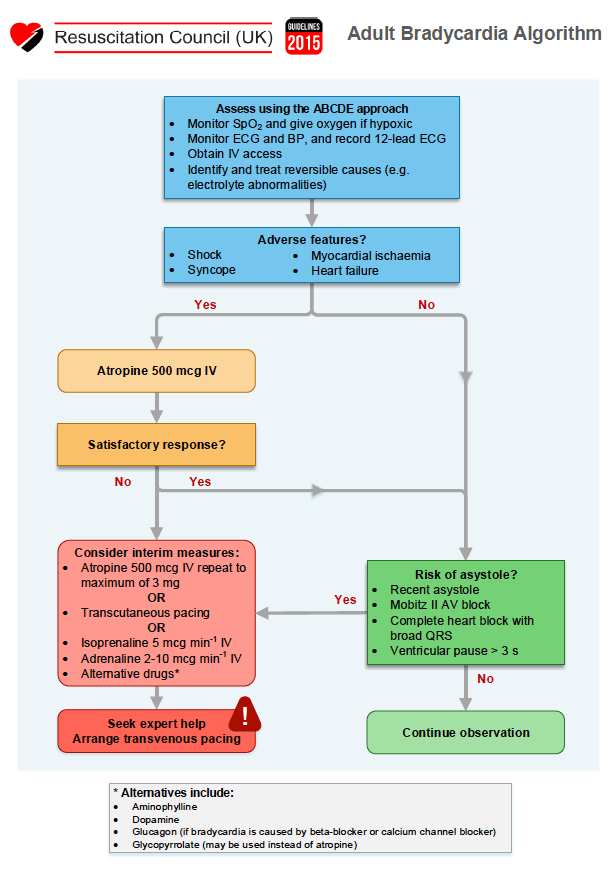A 72-year-old man presents with chest pain and intermittent syncope. He tells you that he has been suffering with episodes of dizziness and fatigue over the past few weeks. On review today his heart rate is 37 bpm and his rhythm strip is shown below:

Show Answer
Show Answer
Fixed ratio blocks can be due to either Mobitz I or Mobitz II atrioventricular block. It is not always easy to determine which of these is the underlying cause of the fixed ratio block but the QRS complex provides important clues.
Generally speaking:
- Mobitz I conduction usually produces narrow QRS complexes as the block is located at the level of the AV node. Mobitz I blocks tend to improve with atropine and have an overall more benign prognosis.
- Mobitz II conduction usually produces broad QRS complexes (often in the context of a pre-existing LBBB). These tend to be unresponsive to atropine and are more likely to progress to complete heart block or asystole.
3. According to the ALS bradycardia algorithm which of the following would be the most appropriate next step in his management?
Show Answer
This patient should receive 500 mcg of IV atropine as the next step of his management. Atropine is indicated for sinus, atrial, or nodal bradycardia or AV block, when the haemodynamic condition of the patient is unstable because of the bradycardia.
The ALS bradycardia algorithm recommends a dose of 500 mcg IV if any of the following adverse features are present:
- Shock
- Syncope
- Myocardial ischaemia
- Heart failure
If this is unsuccessful further 500 mcg doses can be given at 3-5 minute intervals until a maximum dose of 3 mg is reached. Doses greater than 3 mg can cause paradoxical slowing of the heart rate.
Other interim measures suggested by ALS bradycardia algorithm include:
- Transcutaneous pacing
- Isoprenaline infusion 5 mcg/min
- Adrenaline infusion 2-10 mcg/minutes
- Alternative drugs (aminophylline, dopamine, glucagon, glycopyrrolate)
The ALS bradycardia algorithm is shown in full below:

Further ALS resuscitation guidelines can be read at the Resuscitation Council (UK) website here.






Thanks, it’s so much informative.